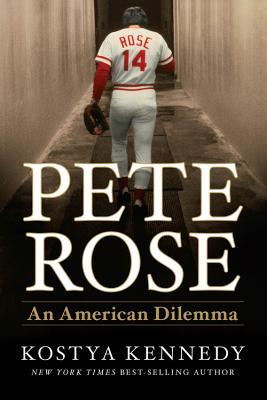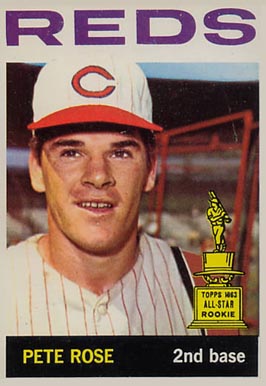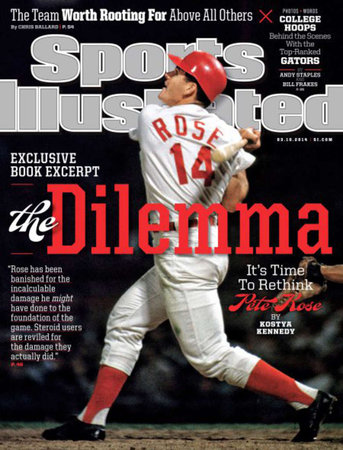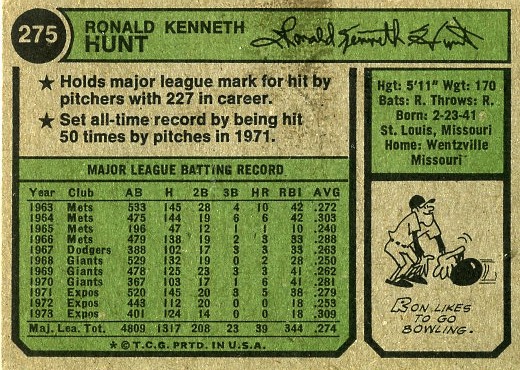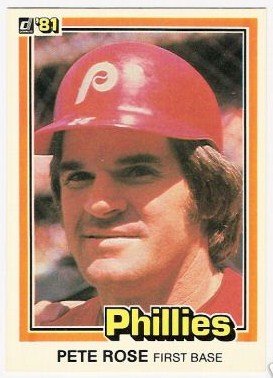

Hero or scoundrel? Or both? Kostya Kennedy’s new book rethinks Pete Rose from both sides now.
Keep calm and reconsider Pete Rose. Relax: nobody is asking you to change your mind, even though your opinion has toggled back and forth going on two decades now. It’s exhausting, this business of judgement. At long last, the iconic superstar who rose up with one obsession (baseball) and was taken down by another (gambling) is ready for his close-up.
Sports Illustrated assistant managing editor Kostya Kennedy has written the definitive book that helps us sort it out. Pete Rose: An American Dilemma digs (and cuts) deep. Is Rose an enigma? Only to sports fans, journalists, former teammates and his own family. Has he seen the error of his ways and repented? Uh, this is Pete Rose. Charlie Hustle.
Here, Kostya runs us around the bases and makes this most difficult of topics easy to digest. The final decision on Pete Rose, however, is still up to you. Now make like King Solomon.
Pete Rose wrote a memoir [My Prison Without Bars, 2004], touching upon his gambling and his Hall of Fame shun. Didn’t that do the trick?
His book really never had any impact. Clearly, Pete tried to make you like Pete. It was very manipulative. It had a specific agenda, which I don’t feel that I had. There were some interesting things in his book. It wasn’t all bad. But the fact that he was writing about himself didn’t enter into my thinking in any way.
Included in the dilemma is that Pete Rose is actually a likable guy.
He’s likable in many ways. He’s witty and funny and quite intelligent in his banter and the way he interacts with people. And there’s his work ethic. There are things to like about Pete. But [in his memoir] he was trying to make himself into something that he isn’t.
These days, Pete is no longer a young man, which gives a new dimension to the dilemma. You say in your book that he is hardly the grandfatherly type.
He’s 73. He’s not grandfatherly in any way. He’s still got his swagger. He’s 73 but he doesn’t know he’s 73. I don’t think he thinks of himself as an older man.
Like most dilemmas, the Pete problem is that it’s not exactly black and white. It’s hard to make a final decision on him and stick with it.
Sometimes there is a gray area in a dilemma. That is true in many ways with Pete because in terms of the large question of whether he should be in the Hall of Fame, you can argue it pretty eloquently both ways.
Also, in the sense of who Pete is, there are many contradictions. When you talk about Pete, there is always a “yeah, but.” Saying that “I love this guy” on one hand, but “he is such a scoundrel” on the other. That’s really at the heart of how we think about him.
Part of the soft spot we have for Pete is that he was such a go-getter. He earned his iconic status. You say a good part of that can be attributed to his father.
[His father] certainly taught him how to play baseball and how to carry himself on the field. He taught him explicitly by telling him things that he should or shouldn’t do, but also by actions. [His father] was no major league baseball player, but he played football into his forties for some local semi-pro team. It was kind of a big deal then. It was not a small thing to play on those teams.
His dad would always be there, at all of his practices, at his games, always talking to Pete. It is the most important relationship Pete has ever had in his life.
The same cannot be said for his very colorful mom.
He wasn’t that close with his mom. He didn’t get very close to people besides his dad. She was the one getting into bar fights, not the dad.
His nickname, Charlie Hustle, is very flattering. What’s the evolution of that name?
I agree that it’s an incredible flattering nickname, but it started out rather derivesively. Here was this hot dog who would run to first base on a walk. The guys who laid the nickname on him were Whitey Ford and Mickey Mantle. Here’s this pipsqueak running around, crashing into walls.
You could see it evolve where the name would have more and more meaning. It became more and more accurate. People saw the substance that was behind Pete in the way he played. Basically, people don’t hustle like Pete now, and they didn’t hustle like Pete did then. It’s an incredibly apt and deserving and flattering nickname.
He’s such a strong personality and excellent athlete, but what were some of his weaknesses?
He has a lot of weaknesses in the talent area. He couldn’t throw. He didn’t have such a good arm. His speed was only average. He couldn’t hit for power. He wasn’t a great fielder. He was barely adequate.
But what he could do was play baseball. He was obviously a great hitter, great coordination. He knew the game so well. It goes beyond hustle. It goes to understanding the game and participating in the game, having great instincts on the field. He was such a student of the game. He made up for a pretty significant talent deficit. He didn’t have major league speed or a major league arm.
Was his gambling life-long, or did it creep up on him?
He’d been gambling since he was a kid. As far back as 1970, Baseball was looking into him for his gambling. It was a big part of his life all the way through. It got much more intense in the 1980s. That’s when he would bet such large amounts so regularly.
We should be clear that he never threw a game as a result of a bet.
There is no evidence whatsoever. We can never say for sure, obviously. Baseball did a huge investigation. The FBI was looking at it. I myself looked into it every which way I could. There is no evidence that he tried to do anything but win every game, and try to do everything he could within that game to win.
Did he ever show any remorse?
He was completely unapologetic. First of all, he didn’t admit to anything for fifteen years, arrogantly and defiantly. Then, when he admitted it, he did it with kind of a swagger.
It’s only in the past year that I think he’s really felt remorse or regret. When I say remorse or regret, I still don’t think Pete is particularly apologetic to the fans, to the people in baseball, to his teammates. I don’t think he genuinely feels for them. But I think he has apologized in a way by saying, “I messed this up.” I blew it. And he feels a certain sadness and regret about that.
What was he betting on?
He bet on every sporting event you can name. He loved to play the horses. He still plays the horses a lot. It’s his favorite thing. He loves horse betting. He bets on football, basketball, golf. All of that.
In baseball, it was all part of keeping it interesting for him and giving him something to pay attention to.
He was also famous for another human weakness.
His philandering? Back in the Sixties, [his wife, Karolyn] would give him a coin at the beginning of the season and say, “If you find somebody better, call me and I won’t come pick you up.”
For whatever reason it was, Karolyn understood that boys will be boys. She let Pete do whatever he did. When she got upset about it is when he became more serious with the woman who became his second wife, Carol. Karolyn didn’t go for that anymore. That was too much.
He even had a child with another woman, named Terri Rubio. That, understandably, put a significant strain on his relationship with Karolyn and contributed to the split.
One thing could be said for Pete: he was not a racist.
He wasn’t. Lots of people played for [Cincinnati Reds owner] Marge Schott and were not racist. Pete was as color blind as you will get. When he came up in the Sixties, his best friends were the black players. That wasn’t the easiest thing at that time in America, in Cincinnati. Pete didn’t care. He did what he wanted to do.
Who exactly does not want him in the Hall of Fame?
Lots of people who feel his betting on the games so endangered it. It’s a hard thing to answer because he was never even allowed to be on the ballot to be voted on, so we don’t know exactly who feels what.
Two years after Pete was banned from baseball [he was banned in 1991], The Hall of Fame Board made up a rule that anyone who is permanently ineligible for baseball is no longer eligible for The Hall of Fame. They did that specifically to keep Pete out.
Does Pete’s story serve as a warning to up-and-coming baseball players?
No question. If you gamble, you are going to be banned from this game. Pete definitely serves as a warning. If it happened to Pete Rose, who was as beloved a player as you can get, then it can happen to anybody.
Be sure to read Kostya’s insightful book.








